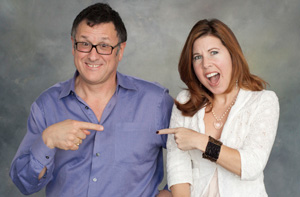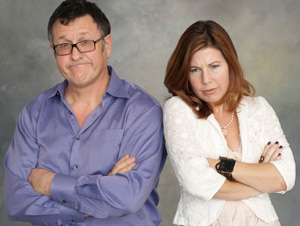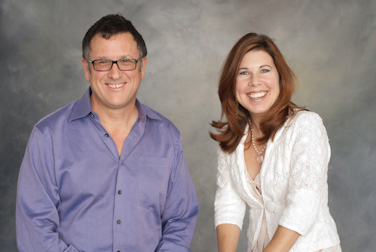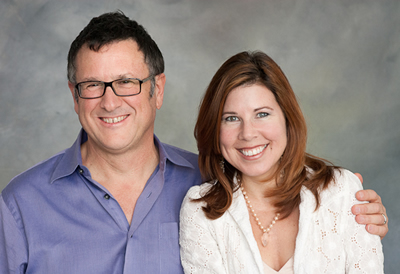Life is really all about relationships; we can hardly exist without them. And that is why relationships are sometimes the solution, and other times the problem.
Living in this modern world we are forging a new way more than we realize. And when it comes to relationships, there are new challenges facing us and few places to turn for guidance. The traditional roles of the past are no longer as prevalent – and we luckily have more freedoms these days. But there’s also a price to pay, for society’s structures and norms make it clear how we are supposed to act. Therefore, while we are free to just be ourselves in this free society, knowing how to build and maintain relationships isn’t always easy.
To a large extent we have to depend on other people to meet our needs and it’s hard to negotiate relationships all on one’s own. Doing this can cause people to burn out; they become frustrated because they think they are self-aware, communicative and fair, but modern relationships are really challenging. We all have our own secret, inner worlds and have to communicate them, which is hard because you can’t literally show someone your emotion. There’s the working on our own internal state, and then communicating our needs and desires to someone else. Yet there’s still another component: How they respond.
“Typical” Couples Therapy?
 It’s typical for women to want to go to therapy together as a couple, for men to say it doesn’t work, and then for it to be dropped. But days, weeks and months later, the same arguments and issues rear their head, resentments build, distance lengthens, and romance and passion wither. Every couple has problems and every person in a relationship experiences fear, doubt, anger, confusion and sadness about their relationship at times. We bring issues from our past into every new relationship, never realizing how often we are reacting in old, learned ways.
It’s typical for women to want to go to therapy together as a couple, for men to say it doesn’t work, and then for it to be dropped. But days, weeks and months later, the same arguments and issues rear their head, resentments build, distance lengthens, and romance and passion wither. Every couple has problems and every person in a relationship experiences fear, doubt, anger, confusion and sadness about their relationship at times. We bring issues from our past into every new relationship, never realizing how often we are reacting in old, learned ways.
“Problem”-oriented vs. Strengthening
Deciding on therapy does not necessarily mean your relationship is in trouble. Certainly, if you’re not communicating well or have a special issue that needs working out, Psychotherapy can help. And when a relationship does seem to be hanging by a thread, Psychotherapy can be a lifesaver. But problems aside, it can also improve and strengthen your bond, deepen your love and affection for one another.
“He Said, She Said.”
 While men often worry that they will be ganged up on in therapy and fear being blamed for everything, women sometimes have a tendency to “dump” it all out in therapy, overwhelming the spouse. Aside from stereotypical patterns, however, both men and women can be hesitant to let themselves be vulnerable in front of a stranger. But the therapist is versed in all of this and skilled in maneuvering around all the roadblocks that may be preventing a couple from truly thriving. Finding a therapist that you like and trust is the first step in getting to a much better place.
While men often worry that they will be ganged up on in therapy and fear being blamed for everything, women sometimes have a tendency to “dump” it all out in therapy, overwhelming the spouse. Aside from stereotypical patterns, however, both men and women can be hesitant to let themselves be vulnerable in front of a stranger. But the therapist is versed in all of this and skilled in maneuvering around all the roadblocks that may be preventing a couple from truly thriving. Finding a therapist that you like and trust is the first step in getting to a much better place.
Romance “Playshops”
Couples workshops and retreats can be a fun, non-threatening way to learn more about your mate and strengthen your connection. Middle Way Health does couples retreats for those who want to improve their relationship skills and re-ignite their attraction/devotion to one another. These retreats are specifically designed for couples currently undergoing therapy.
Common Fears About Therapy:
Worsening – ‘If it ain’t broke, why fix it?’ Wanda admits she fears that therapy could exaggerate an issue and possibly worsen things between her and her husband. But therapy does not create problems; it sheds light on them and helps prevent them from worsening and causing greater distress in the future. While some news can be startling and upsetting to hear, both clients must be open to seeing trouble zones and be willing to accept their role in where they go from there. No relationship or person is perfect, and the sooner we stop expecting this in ourselves, the sooner we will stop demanding it from others.
Doomsday – Ed was very uncomfortable when he heard his wife wanted to go to therapy for a problem he didn’t feel was a big deal. In his eyes, if his wife was already this unhappy and he couldn’t see it, it could be too late, the disconnect may be too large to fix.
Yet if Ed doesn’t take his wife’s concern seriously, the relationship will most likely fall apart. What he needs to do is back up and look at the situation differently. Therapy is a tool for uncovering emotional drains and reinforcing leaks. For it to be used properly, the participants have to accept their flaws and let down defenses. Ed may fear it could be revealed that his wife’s unhappiness is all his fault, but relationships are always a two-way street. Blame is one-dimensional and unproductive while responsibility leads to solutions.
 Vulnerability – “In therapy you could become utterly exposed, perhaps revealing a “fatal flaw”. Considering couple’s therapy with his partner Gary worries about this, having never been to therapy before.
Vulnerability – “In therapy you could become utterly exposed, perhaps revealing a “fatal flaw”. Considering couple’s therapy with his partner Gary worries about this, having never been to therapy before.
There is no flaw so unmanageable, however, other than the unwillingness to listen to another fully, look at oneself honestly, and see the relationship for what and how it really is. We have to love and accept ourselves, flaws and all – or we’ll never have the strength to break through barriers.
Shock – Madeleine sometimes hears of “great couples who suddenly divorce” and worries about this happening to her. “Aren’t all relationships on the cusp of disaster at any given time?!” she asks.
It feels that way to her because she herself has a history of walking away from relationships. She’s never been so committed that she accepted how much work relationships can really be at times. But once you get over the shock of hearing unpleasant things and accept that people are imperfect, you realize it is always your choice whether to hang in there and do the work (improve and grow together), or not. Life, relationships and people in general are going to be messy at times. The question is how you handle the mess.
Perspective – “Do people look at love/relationships/communication/sex/etc differently? And when these differences are revealed, is there no going back sometimes?” Kara, a single mother contemplating dating again, voices her reservations.
It is good to talk about these issues before a relationship gets too serious. In fact, the relationship should be based on them. If you’re emotionally into someone and are considering a future but haven’t discussed views on relationships, love, marriage, family, etc., you may be surprised to find that you aren’t compatible enough. It’s better to really know how someone feels about these life events and to express your own desires fully.
 Routines – “Therapy can help couples learn more about each other and ways to better relate, but as we are creatures of habit, do we tend to fall back into old patterns unless we periodically return to therapy?”Jay, a recent divorce, asks. The more we practice something, the more it becomes like second nature. In addition, the more important something is to us, the more we’ll practice it. But checking ourselves and our patterns once in a while is a good idea. In fact, these things are usually revealed in how our mate interacts with us. If discord in the relationships arises, something needs to be checked. We all have to be periodically reminded of our life’s lessons.
Routines – “Therapy can help couples learn more about each other and ways to better relate, but as we are creatures of habit, do we tend to fall back into old patterns unless we periodically return to therapy?”Jay, a recent divorce, asks. The more we practice something, the more it becomes like second nature. In addition, the more important something is to us, the more we’ll practice it. But checking ourselves and our patterns once in a while is a good idea. In fact, these things are usually revealed in how our mate interacts with us. If discord in the relationships arises, something needs to be checked. We all have to be periodically reminded of our life’s lessons.
Middle Way Health Can Help Couples With:
- Romance – Falling in love with your mate again
- Connection – Developing deep soul mate love
- Communication – Improving expression and understanding
- Intimacy – Strengthening physical and emotional bonds
- Parenting – Resolving parenting issues and pressures
- Boundaries – Helping set reasonable boundaries and agreements
- Money – Resolving differing expectations, fears, habits and desires
- Healing – Moving past grudges and resentments
- Purpose/Spirit – Helping find greater meaning, goals and growth
We Provide:
- A safe, non-judgmental environment
- Specialized experience and education in marriage and family counseling


